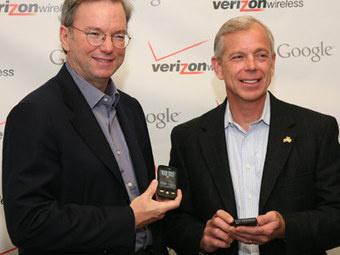
Does it really come as much surprise to find out that Google has been offering carriers revenue sharing deals to promote the adoption of their Android OS? That's the question being asked on the blogosphere today, and whether your answer is yes or no, it seems like a good business proposition to me.
MocoNews reported yesterday that several sources "familiar with the matter" (I die a little inside every time I hear that phrase) have suggested that in an effort to get carriers to adopt Android, Google has been offering to share advertising revenues achieved through searches initiated from mobile devices, via Google's search engine. According to the report, they must adopt Google Search, Maps, and GMail as part of their native application offerings on the Android devices they are selling to be part of the deal.
Since Android is open source, there are no requirements as to what apps need to be included on devices, just as it is fair game to overlay a company's customized user interface over the stock Android interface (think SenseUI, TouchWiz). So, it would seem that companies really have two options:
I'm no business expert, but the choice seems clear enough to me. To answer my own question from above: yes, I was surprised to hear this news. However, as I alluded to previously, if you've got the wherewithal to accomplish your sales goals, does it really matter if you spend it in advertising (think Verizon and DROID) or revenue sharing with potential and existing partners? I think not. Share your thoughts in the comments below!
Update: Just as fast as I could post the story, PhoneScoop is reporting that they've heard back from Google regarding the rumor. Google said "We share revenue on search, not on mobile applications. The same is true for non-Android devices that use Google as the default search engine." I'm not sure this fully addresses the fact that maps and other applications will probably be growing in terms of advertisements in the future. What's more, a spokesperson said "Any terms of our agreements with partners are confidential," which leaves some room for speculation of similar deals in the future.